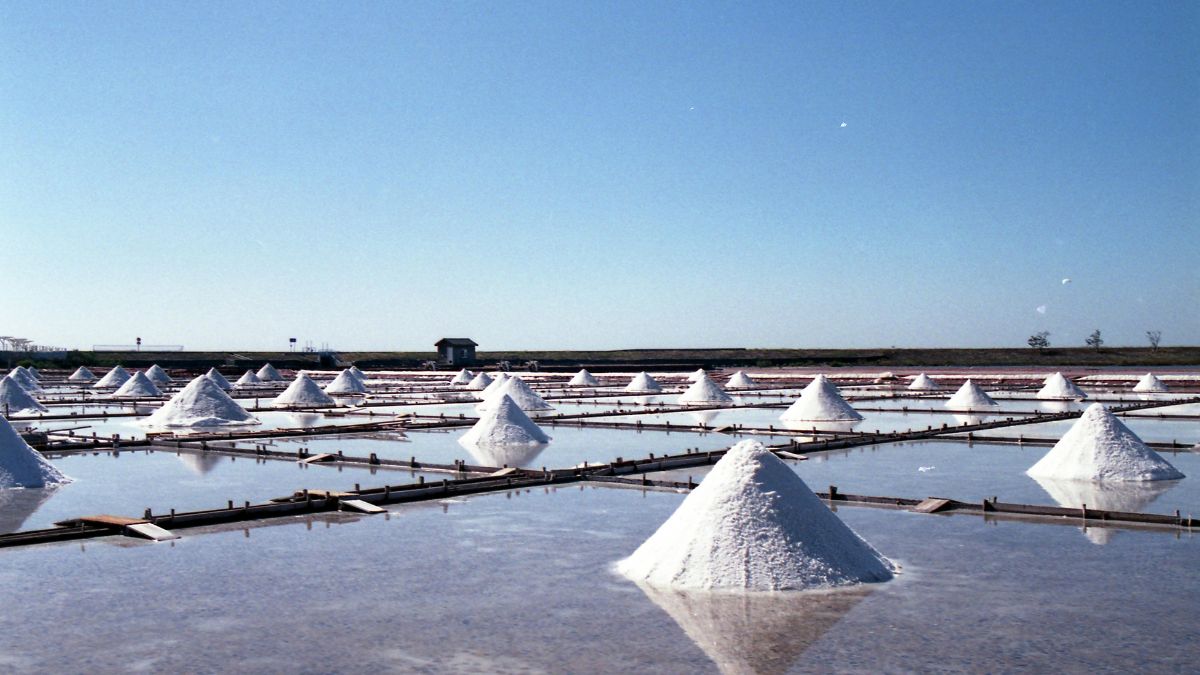Saltiest Sea in the World: The Dead Sea is the saltiest sea in the world because it has an extremely high salt concentration of about 34%, which is nearly ten times saltier than normal ocean water. This happens because the Dead Sea has no outlet, so water that flows in never leaves, causing minerals to accumulate over thousands of years. Its unique density, mineral richness, and therapeutic properties make it one of the most fascinating water bodies on Earth.
Why Is the Dead Sea So Salty?
The Dead Sea is located in a desert region with high temperatures, which causes intense evaporation throughout the year. As water evaporates, minerals like sodium chloride, magnesium, calcium, and potassium remain, gradually increasing the salinity. The Jordan River provides only limited fresh water, so salts accumulate over time. This natural process has created a water body so dense that its buoyancy and mineral content are unmatched anywhere in the world.
Can Anything Live in the Dead Sea?
Most marine life cannot survive in the Dead Sea due to its extremely high salt levels. Fish, plants, and regular algae cannot live in such harsh conditions because the salinity draws moisture out of cells. These tiny organisms are valuable to scientists studying extreme life forms and can even provide insights into how life might exist on other planets.
Why People Float Effortlessly in the Dead Sea?
The Dead Sea’s water is so salty and dense that it naturally supports the human body, allowing anyone to float without effort. The buoyancy is a result of the high mineral content, which pushes the body upward. This floating effect attracts tourists worldwide. Additionally, the Dead Sea’s mud is mineral-rich and used for skincare treatments, as it helps cleanse, nourish, and rejuvenate the skin.
Location of the Dead Sea
The Dead Sea lies between Jordan on the east and Israel and Palestine on the west. It is also the lowest point on Earth, about 430 meters below sea level. The sea was formed millions of years ago due to tectonic shifts and has a long history, appearing in many ancient texts and civilizations. Its location, historical importance, and unique geography make it both a natural wonder and a major tourist attraction.

Interesting Facts About the Dead Sea
1. Ancient Natural Spa: The Dead Sea has been used as a natural spa for thousands of years. Ancient rulers traveled to the region to bathe in its mineral-rich waters, believing it improved health and beauty.
2. Mineral-Rich Mud: The mud along the Dead Sea shores contains sulfur, magnesium, calcium, and other minerals that help improve skin texture, reduce inflammation, and detoxify the body. Many modern cosmetic brands still use these minerals in products.
3. Stunning Salt Formations: The shoreline is full of crystal-like salt formations shaped like rings, pillars, and mushrooms, creating a surreal landscape that attracts photographers and tourists alike.
4. Rapid Shrinking: The Dead Sea is shrinking each year due to reduced water inflow and climate changes. This exposes more salt formations and has created sinkholes around the region.
5. Oxygen-Rich Air: The air near the Dead Sea contains higher levels of oxygen and minerals, which many visitors find refreshing and therapeutic, particularly for respiratory health.
6. Floating Metal Objects: Even small metal objects float easily due to the dense water, a phenomenon that has fascinated scientists and tourists for decades.
7. Cleopatra’s Beauty Secret: Historical records claim Cleopatra used Dead Sea mud and salts for her skincare and beauty routines, valuing the region for its minerals.
8. Global Cosmetic Use: Minerals and salts from the Dead Sea are exported worldwide for use in soaps, lotions, bath salts, and therapeutic products, making it an important economic resource.
Read more: Which Is the Largest River in Asia?
The Dead Sea is the most salty sea in the world due to its high mineral content, constant evaporation, and lack of an outlet. Its extreme salinity allows people to float effortlessly and provides therapeutic mud for skincare. Keep reading for more topics like this.
Comments
All Comments (0)
Join the conversation